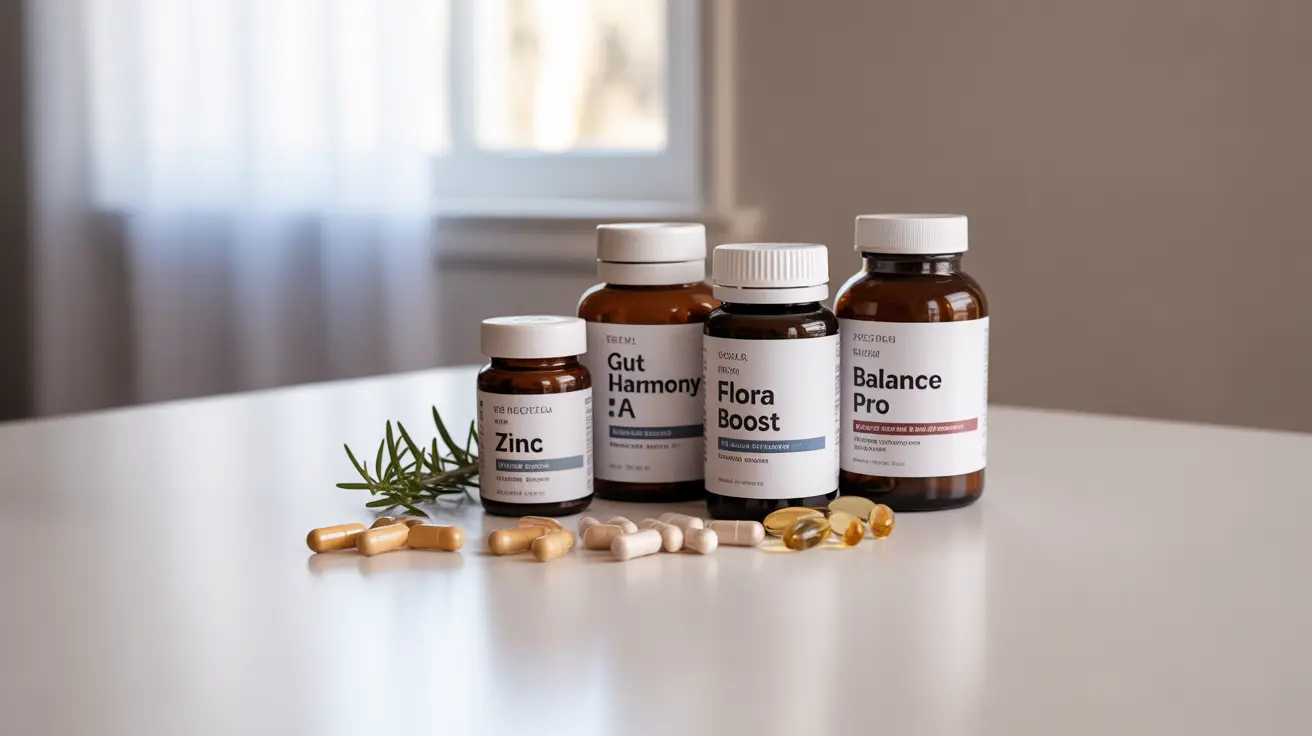Living with acne can be challenging, but various natural supplements have shown promise in helping manage breakouts and improve skin health. Understanding which supplements work best for acne and how to use them safely can make a significant difference in your skincare journey.
In this comprehensive guide, we'll explore the most effective supplements for acne treatment, their benefits, proper dosages, and important safety considerations to keep in mind.
Key Supplements for Fighting Acne
Zinc for Acne Management
Zinc stands out as one of the most researched supplements for acne treatment. This essential mineral helps reduce inflammation, regulate oil production, and support immune function. Studies suggest that zinc can be particularly effective for people with moderate to severe acne when taken orally.
The recommended dosage typically ranges from 30-45mg daily, but it's important to choose the right form. Zinc picolinate and zinc methionine are generally better absorbed than other forms.
Vitamin A and Retinoids
Vitamin A plays a crucial role in skin health and acne management. While both oral and topical forms can be effective, topical retinoids (vitamin A derivatives) are often preferred due to their direct action on the skin and lower risk of side effects.
- Normalizing skin cell turnover
- Reducing inflammation
- Preventing pore blockage
- Promoting healing of existing acne lesions
Selenium and Vitamin E Combination
The antioxidant properties of selenium and vitamin E work synergistically to support skin health. Selenium helps protect skin cells from oxidative stress, while vitamin E promotes healing and may help reduce scarring from past breakouts.
Supporting Supplements for Skin Health
Omega-3 Fatty Acids
These essential fatty acids help reduce inflammation throughout the body, including in the skin. Fish oil supplements rich in EPA and DHA can help moderate severe acne and support overall skin health.
Probiotics
Gut health and skin health are closely connected. Probiotic supplements may help reduce inflammation and support the skin's natural barrier function, potentially leading to fewer breakouts.
Safety and Usage Guidelines
Before starting any supplement regimen for acne, consider these important factors:
- Consult with a healthcare provider before beginning supplementation
- Start with lower doses and gradually increase as tolerated
- Be consistent with your supplement routine
- Monitor for any adverse reactions
- Choose high-quality supplements from reputable manufacturers
Frequently Asked Questions
What supplements are most effective for reducing acne inflammation and lesions?
Zinc, vitamin A, and omega-3 fatty acids are among the most effective supplements for reducing acne inflammation and lesions. These supplements work through different mechanisms to combat inflammation, regulate oil production, and support skin healing.
How does zinc help clear acne, and what is the recommended dosage for supplementation?
Zinc helps clear acne by reducing inflammation, regulating oil production, and supporting immune function. The recommended dosage is typically 30-45mg daily, preferably taken with food to minimize stomach upset.
Are topical vitamin A retinoids safer and more effective than oral vitamin A supplements for acne treatment?
Yes, topical retinoids are generally considered safer and more effective than oral vitamin A supplements for acne treatment. They deliver targeted benefits directly to the skin while minimizing the risk of systemic side effects associated with high-dose oral vitamin A.
Can selenium and vitamin E supplements improve acne healing and reduce scarring?
Yes, selenium and vitamin E supplements may help improve acne healing and reduce scarring through their antioxidant properties. They work together to protect skin cells, promote healing, and support tissue repair.
What precautions should I take when using acne supplements to avoid side effects or interactions?
To safely use acne supplements, always consult with a healthcare provider first, especially if you're taking other medications. Start with recommended doses, monitor for side effects, and be aware that some supplements can interact with medications or other supplements. It's also important to choose high-quality products from reputable manufacturers.




